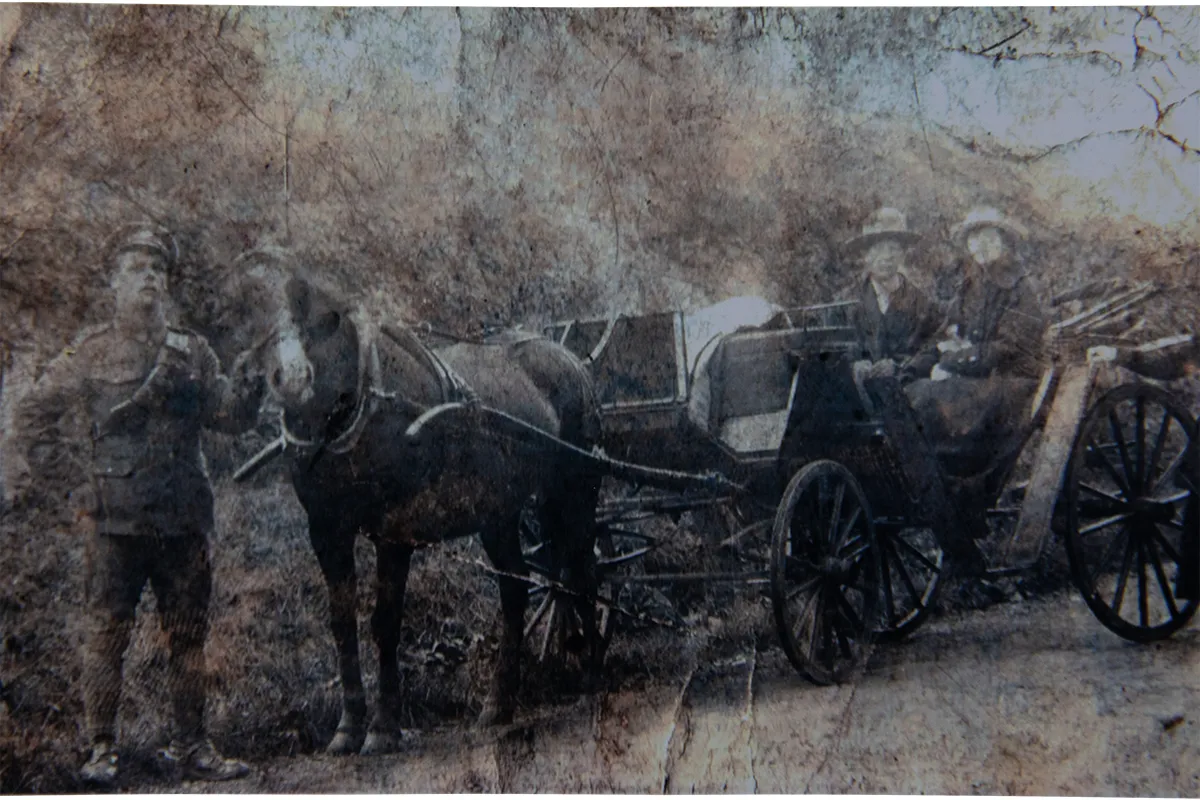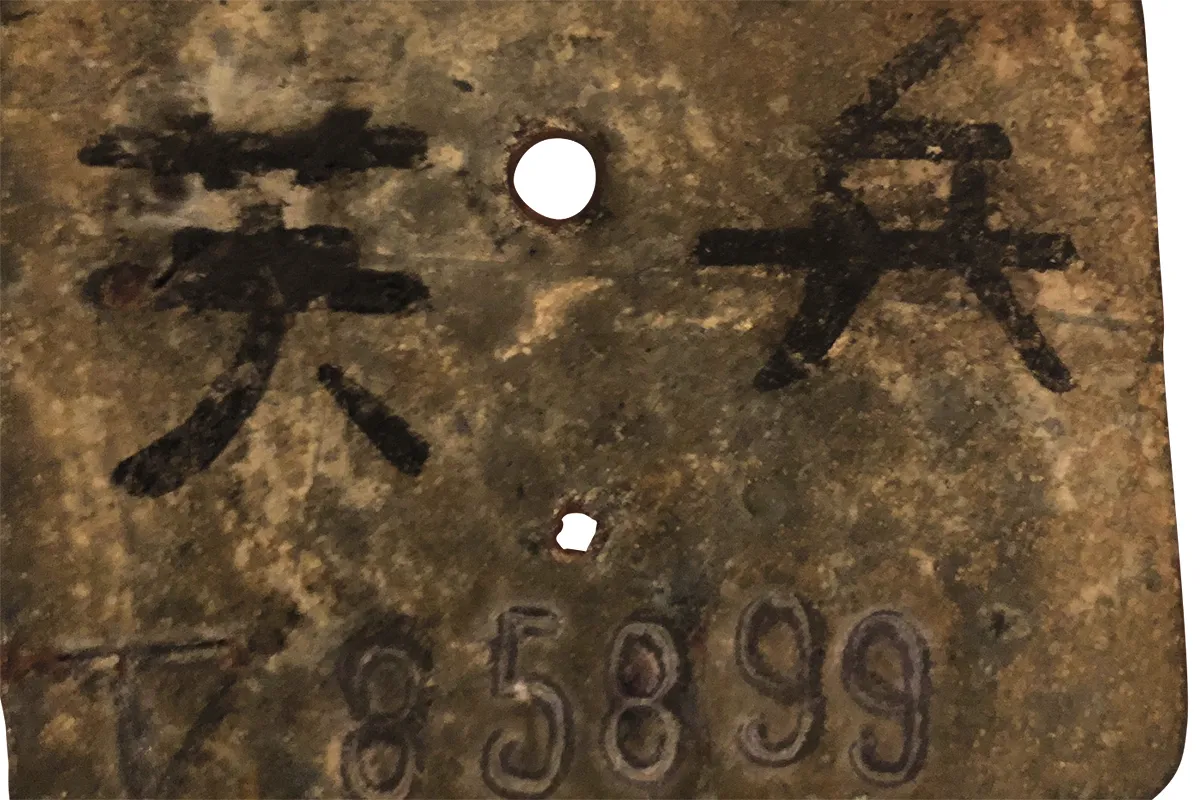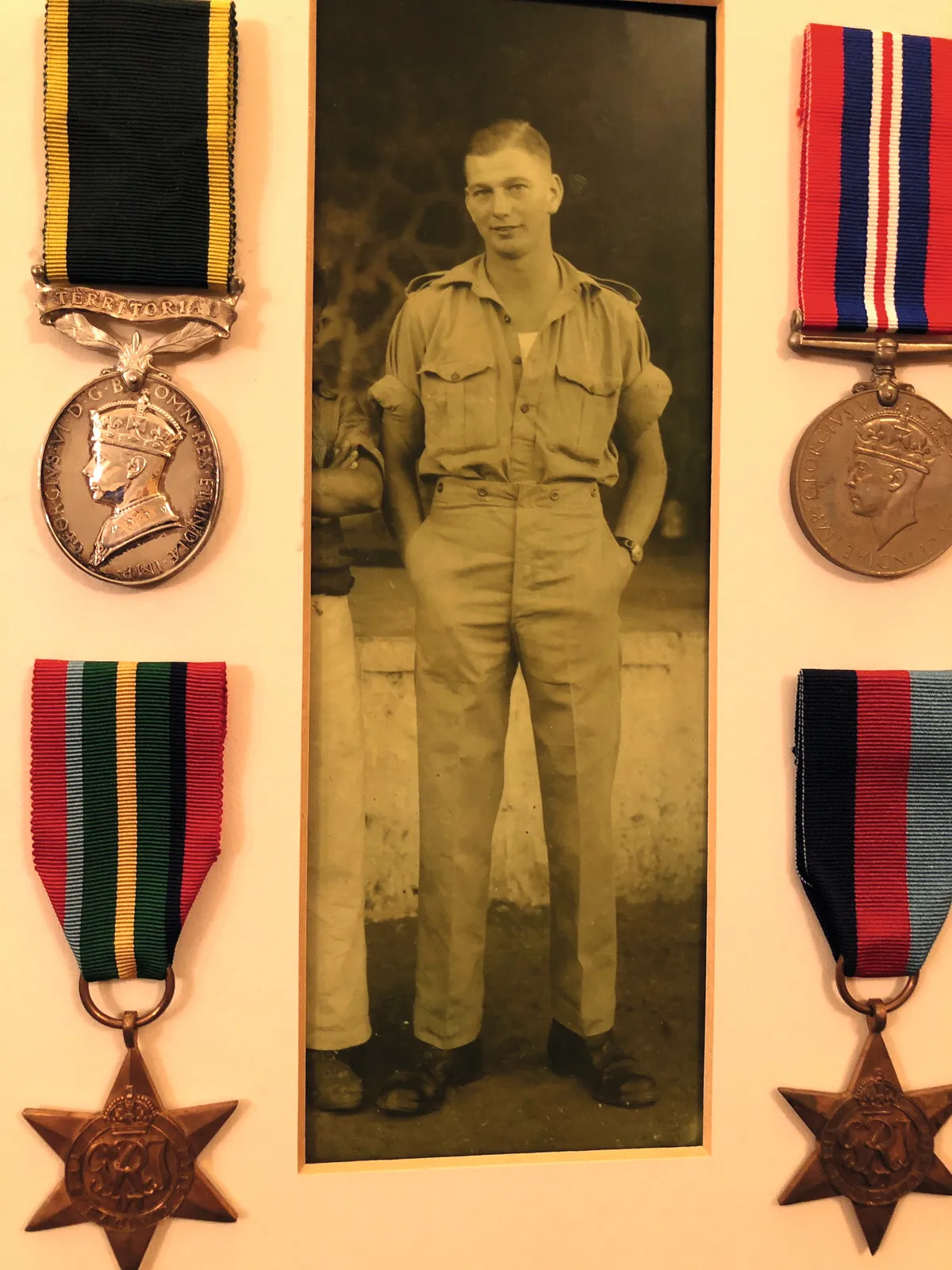On 15 February 1942 the Japanese captured Singapore, a strategic British military defence post during the Second World War. Its loss was a significant blow. Soldiers – many of them British – were rounded up and sent to one of the notorious Japanese prisoner-of-war camps. Many of them were to die there or while building the 258-mile Burma Railway as forced labour.
Who Do You Think You Are? Magazine reader Thomas Price is the grounds and gardens team leader at the National Memorial Arboretum near Lichfield in Staffordshire, and frequently works with both staff and volunteer team members to maintain the area of the site dedicated to those who served in the Far East. Just recently, however, he discovered that he has a much more personal connection to the memorial.
It came to light when he started researching his family history during the first Covid-19 lockdown. The pandemic meant that on the 75th anniversary of VE Day in May 2020 – when the arboretum should have been packed with visitors – there was just Thomas and five other members of his team there to pay their respects. “It was one of the most moving experiences of my life. We were standing at the Armed Forces Memorial, and after our moment of reflection one of my colleagues said to me, ‘You were really quiet. Who were you thinking about?’ I explained that I knew of just one soldier in the family, a maternal great grandad. He suffered with post-traumatic stress disorder later on in life, but I knew nothing about him – I didn’t even know his name – and it spurred me on to find out more.
“What I discovered shocked me. I didn’t realise I had so many military relations; I’m so proud of them.” This includes his great great uncle Joseph Henry Price, “my great grandfather’s brother, who served with the Royal Army Service Corps (RASC) and then with the 34th Company of the Machine Gun Corps during the First World War. He was awarded the Belgian Croix de Guerre for excellent conduct.”

Thomas also managed to put a name to the soldier who he was thinking about at the VE Day ceremony. “He was Cecil Watson Ash, my mum’s grandfather, who was in the Sussex Light Infantry. He was wounded at the Battle of Dunkirk, and was saved by one of the brave little ships.”
Heartbreakingly, Thomas came across 13 letters sent from the trenches by one relation who perished in the Somme. “A lot of my relatives in the military sadly died in battle, but there were a few survivors.” One of them is his first cousin three times removed, Jeffrey Basil Price. His story has had the biggest impact on Thomas.
He discovered Jeffrey, a driver in the RASC, while he was researching his dad’s side of the family. “I ordered the birth certificate for my great grandad Stanley Price; his father was Joseph June Price. I learnt that Stanley lost his mum in 1911, when he was only four, and his dad in 1914. He was the youngest of six children, and was brought up by his uncle Beecher Price and his wife. Stanley’s dad was the oldest son of Joseph Price, who in 1875 founded a forge in Halesowen in the West Midlands, which later employed servicemen wounded in the First World War.”
The company, called BB Price, is still owned by a branch of the Price family. When Thomas made contact, they were happy to share some family stories with him, which included the Second World War experiences of Jeffrey, one of Stanley’s cousins. Jeffrey had been a company director at BB Price before he died, so the firm’s archives hold a lot of information about him including a newspaper article that tells how he was taken prisoner by the Japanese.
The owners put Thomas in touch with Jeffrey’s children – Judith, Maggie and John – who sent him some information as well as Jeffrey’s POW dog tags and a couple of photos. In the account of his experiences that they shared, it’s clear that Jeffrey had always believed that three things helped him make it home alive.

“Jeffrey survived the Burma Railway. He had been in the Territorials, so was one of the first called up to the British Expeditionary Force. He was successfully evacuated from France, south of Dunkirk. Unfortunately, he arrived in Singapore just two weeks before the Japanese invaded and was sent to Tha Sao prison camp in Thailand. He put his survival down to a number of things. First, he could drive – he was given a Japanese driving licence and moved vehicles sometimes. Always at gunpoint, but it did take him away from the relentless labour.
“Second, he moved a lorry one day to a village and was stood by his vehicle unguarded for a few moments when a villager risked his own life to pass him a block of salt, which he pocketed immediately. Passing it to his commanding officer they now had a secret salt ration, salt being something that they couldn’t replace in their bodies as they sweated it out. He believes it saved a lot of men’s lives, including his own.”
Having the will to survive was also vital, and for Jeffrey this came as a result of an astonishing coincidence. BB Price started out as nail manufacturers, the traditional industry of Halesowen. While he was working on the Burma Railway, Jeffrey found himself knocking in nails from hessian bags labelled “Dogspikes B.B. Price Limited, Halesowen”. According to Jeffrey’s children, “seeing the nails made him feel that he had something to go back to – he had a business – and it gave him the strength he needed to make it home”. Some 40 years later, Jeffrey returned to the area. He found some of the BB Price spikes, and brought them home with him.
"Seeing the nails made him feel that he had something to go back to and it gave him the strength he needed to make it home”
These revelations were very exciting for Thomas. “I was particularly interested in Jeffrey because of the work I do at the arboretum. I’m responsible for leading the maintenance of the Burma Star and the FEPOW (Far East Prisoners of War) section. Occasionally I have sat in the office and looked through the database that I now know Jeffrey is on, along with all of the other soldiers who were captured.”
Thomas realised that through his contacts at the association for Children and Families of the Far East Prisoners of War (COFEPOW), he could find out more about Jeffrey’s time in the camp. The information they provided enabled him to piece together his movements.
Jeffrey was captured on 15 February, the day Singapore fell to the Japanese. He remained there until 9 May, when he left with what was known as “H Force” on Train 4. Jeffrey arrived at Ban Pong in Thailand on 13 May 1943, and after an overnight stay marched for over two days to Kanchanaburi. There followed another train ride to Tha Sao. Here, he was made to work on the ‘death railway’ in Kannyu, Tonchan and Tampii.
After the railway was completed in late 1943, he was evacuated back down to Kanchanaburi to a hospital camp. The men were re-grouped here and as soon as they were fit enough to travel were sent by train back to Singapore, almost all arriving by February 1944. Jeffrey remained there until his repatriation at the end of the war.

Thomas sent what he’d found out to Jeffrey’s children, who were elated. “They learnt a lot about their dad that they didn’t know. That inspired them to come to the arboretum, and we laid wreaths and crosses to remember him.”
For four years, Thomas has been helping to look after the memorials at the arboretum. “To think that all this time I didn’t know I had a family member who was a Japanese POW – it gave me goosebumps when I found out. It reminded me how important it is to maintain these memorials, because everyone’s got somebody in their family who has served in the armed forces and sacrificed a lot, sometimes even their lives.”
And now other people are hearing about Jeffrey’s bravery too. “I’ve always kept the arboretum team updated with my findings about him. There are guided walks through various locations in the arboretum, and along the way they are now telling Jeffrey’s story to the public, which fills me with pride.”
